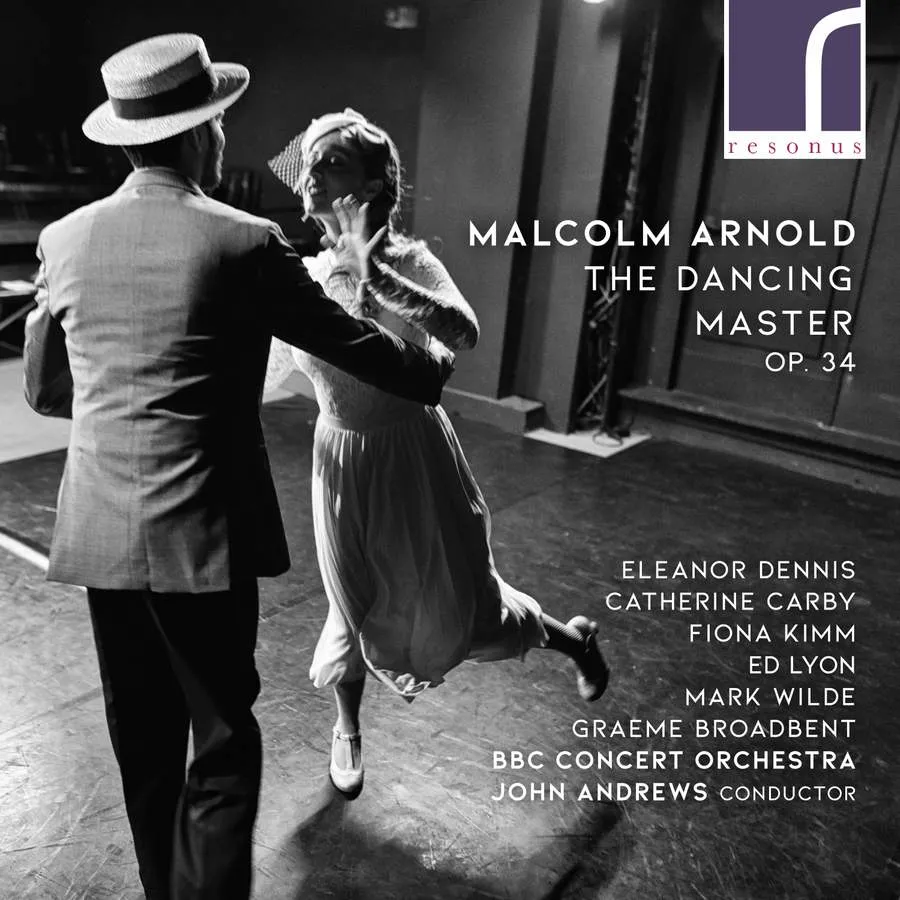
Arnold The Dancing Master, Op. 34 Mark Wilde, Ed Lyon, Fiona Kimm, Graeme Broadbent, Catherine Carby, Eleanor Dennis (voices); BBC Concert Orchestra/John Andrews Resonus Classics RES10269 75:30 mins
Despite – or perhaps because of – his burgeoning success as a film composer, Malcolm Arnold (1921-2006) enjoyed scant approval from the snobby postwar British cultural establishment. The Dancing Master (1952, librettist Joe Mendoza), originally intended for television, was his second opera to be rejected, this time after completion. Dubbed ‘too bawdy for family audiences’, the one-act satire, based on William Wycherley’s Restoration play, lay unseen until a 1962 amateur production with piano.
Time may have rendered its bawdiness quaint – and wider social politics suspect – but this premiere recording from conductor John Andrews, a vivacious cast and BBC Concert Orchestra is dollops of fun, and more besides. Arnold’s inventive, eclectic score is vividly brought to life as Miranda (Eleanor Dennis) and her scheming maid Prue (Catherine Carby) outsmart the pseudo-Spanish father (Graeme Broadbent) and chastity-policing aunt (Fiona Kimm) who would marry her to a ‘Frenchified fop’ (Mark Wilde). Instead, the so-called ‘dancing master’ (Ed Lyon) prevails amidst a riot of mistaken identities, kissing and jumping in and out of windows.
The caricatures are loud and ludicrous – and Arnold spares no one, with a frequent bi-tonality that seems at times designed to fox the singers. But they and the orchestra rise wonderfully to the challenge, and locate with affection the melodic tenderness that lies within the score. From the big, bold opening that segues into a St Trinian’s helter-skelter to cod-verismo – and even perhaps a nod to Meistersinger in the suitors’ comically contrasting poetic offerings – this is no dismissible pastiche, but a seriously worthwhile addition to the repertoire.
Steph Power